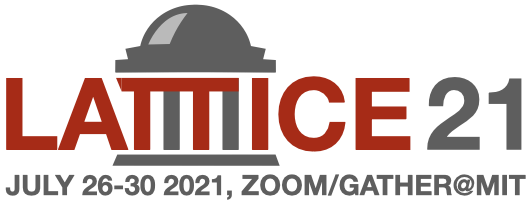Speaker
Description
Hadron spectral functions are important quantities as they carry all the information of hadrons. Unfortunately they cannot be computed directly on the lattice, and can only be extracted from Euclidean two-point temporal correlation functions which are directly computable in lattice QCD. The extraction of spectral functions from correlation functions is an inverse problem, and the most commonly used method is the maximum entropy method (MEM). The MEM is an iterative method, and its resulting spectral function depends on the input prior information of the spectral function. On the other hand, the variation autoencoder (VAE) is a type of neural network that learns to reproduce its input mapping it to a latent space. Thus, VAE can naturally be used for solving inverse problems. Here, in this talk we propose a modified version of VAE, in which the Shannon-Jaynes entropy term is added to the loss function fixing the input training spectral function as the prior information. We prove that such a setup of the neural network guarantees the unique solutions of spectral functions with a fixed combination of encoder and decoder. During the training process we use general spectral functions produced from the Gaussian mixture model. As a test, we use both correlators generated from physically motivated spectral functions having the form of one resonance peak with a continuum term, and those computed from the NRQCD. We will discuss the dependence of output spectral functions on the number of data points in temporal correlation functions, and make comparisons with results obtained from the MEM.




